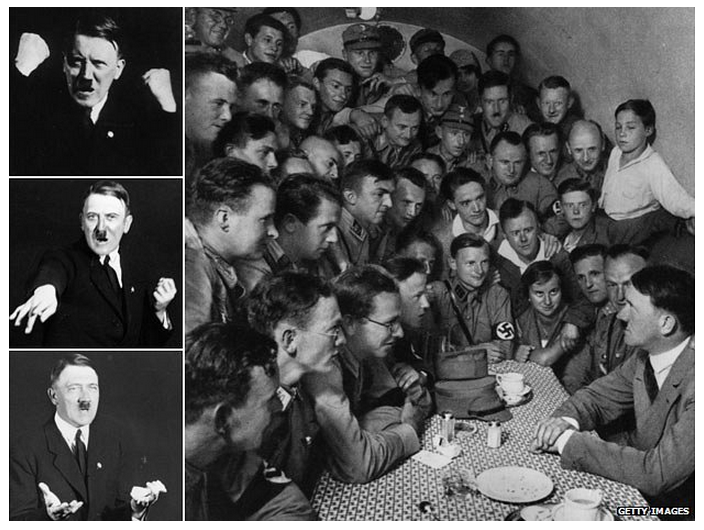There’s currently a brief but insightful article in the BBC online magazine, probably timed for Remembrance Day. The composite of Hitler pics is really well done and stimulates thought about just what was responsible for Hitler’s popularity. And it made me think about people I know who exhibit some Hitler-like behaviour. Won’t name those here, but you might think about whether these pictures remind you of anyone you know, whether in real-life or in the media.
Category Archives: Psychology
The Dunning–Kruger Effect
Something worth reflecting upon as an educator: The Dunning–Kruger effect. Paraphrasing the Wikipedia entry, this is a cognitive bias by which the unskilled mistakenly overestimate their competence. The article gives two excellent historical quotes recognizing the effect:
“Ignorance more frequently begets confidence than does knowledge” (Charles Darwin)
“One of the painful things about our time is that those who feel certainty are stupid, and those with any imagination and understanding are filled with doubt and indecision”
(Bertrand Russell)
This effect is named after two Cornell psychologists who verified it experimentally. Dunning and Kruger also described the converse effect by which the actually competent may suffer lower confidence.
The article quotes cross-cultural studies which claim to show the effect may be less significant, even inverted, with East Asians, however this runs counter to intuition and my personal experience with Japanese university students. Ignorance of one’s own ignorance seems to be intrinsic to the nature of knowledge. Consider the ancient aphorism of Lao Tzu:
He who knows does not speak.
He who speaks does not know.
Having some experience with cross-cultural experimentation, I am acutely aware of the difficulties of conducting carefully controlled, unbiased experiments, as well as the dangers of over-generalizing results out of context. Perhaps it is the social presentation of self-perceived competence that differs between Western and East Asian subjects – something like the ‘Display Rules’ for facial expressions discussed Paul Ekman et al..

